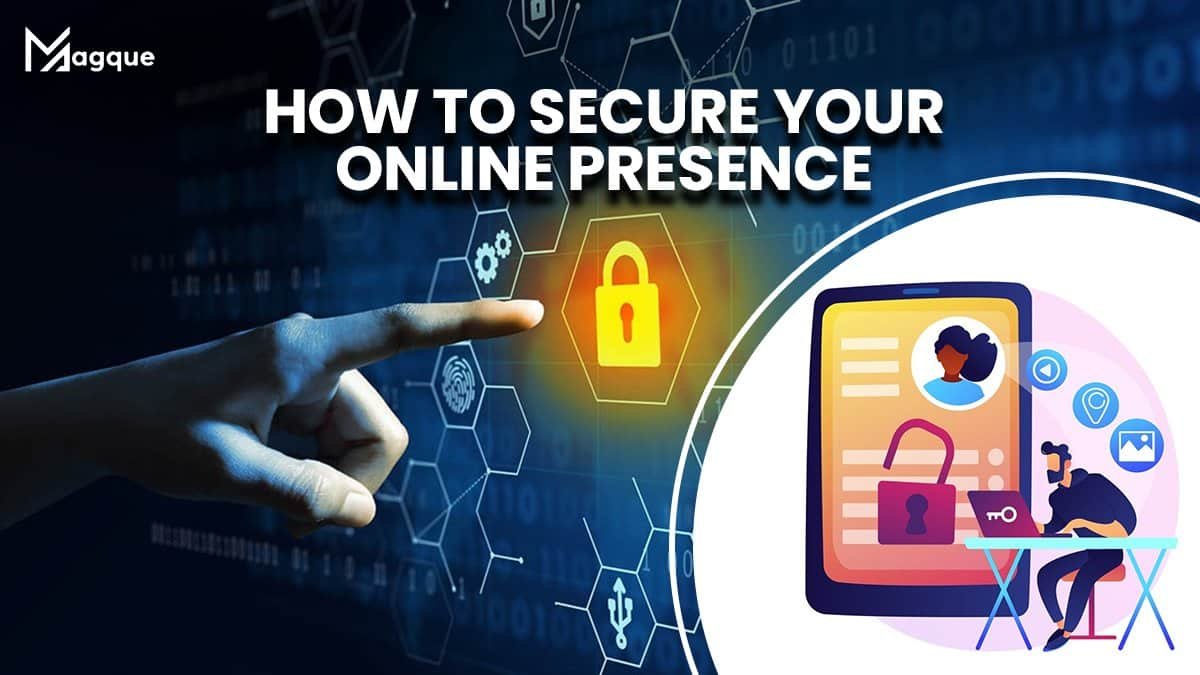Protecting Your Digital Haven: How to Secure Your Online Presence
In this age of digital dominance, our online presence is both a boon and a potential bane. As we navigate the vast landscape of the internet, we share personal information, engage in transactions, and communicate with loved ones. However, this digital frontier is not without its lurking dangers. Cyber threats and privacy breaches are ever-present, ready to pounce on the unprepared. So, how do you fortify your digital fortress and ensure a safe online journey? Let’s embark on this cybersecurity expedition together!
Understanding the Digital Landscape
Before we delve into the nitty-gritty of online security, we must grasp the terrain we’re dealing with. The internet is like a bustling city, filled with opportunities and dangers. Just as you wouldn’t open your front door in the real world, you shouldn’t do so in the virtual world. Your online presence, much like your physical self, requires protection.
Fortify Your Digital Castle
1 Create Impenetrable Passwords
Imagine your password as the moat surrounding your digital castle. Make it strong! Use uppercase and lowercase letters, numbers, and special characters. Avoid easily guessable information like birthdays or common words. The longer and more complex your password, the harder it is for cyber intruders to breach.
2 Enable Two-Factor Authentication (2FA)
Adding 2FA is like adding a drawbridge to your digital fortress. It’s an extra layer of security that requires you to provide two different authentication factors, usually something you know (like a password) and something you have (like a smartphone). Even if a hacker guesses your password, they won’t have access without the second factor.
3 Keep Software Updated
Think of software updates as the knights guarding your castle walls. They patch up vulnerabilities that hackers could exploit. Regularly update your operating system, web browsers, antivirus software, and other applications. Outdated software is an open invitation to cyberattacks.
4 Beware of Phishing Attacks
Phishing is like a Trojan horse – it sneaks malicious software into your kingdom under the guise of something harmless. Be cautious when clicking on links or downloading attachments from unknown sources. Verify the legitimacy of emails and websites before sharing any personal information.
5 Secure Your Wi-Fi Network
Your Wi-Fi network is the gateway to your digital kingdom. Change the default router login credentials, use a strong password, and enable WPA3 encryption. Avoid sharing your Wi-Fi password with everyone, and consider setting up a separate guest network for visitors.
Guard Your Online Identity
1 Limit Personal Information Sharing
Don’t overshare online just as you wouldn’t shout your personal information in the town square. Be mindful of what you post on social media and adjust privacy settings to control who can see your information. Cybercriminals often exploit publicly available personal data.
2 Use a Virtual Private Network (VPN)
Think of a VPN as a secret tunnel through which you access the internet. It encrypts your internet connection, making it much harder for snoopers to eavesdrop on your online activities. Consider using a reputable VPN service to maintain your online privacy.
Stay Vigilant and Educated
1 Educate Yourself
Knowledge is your best defence. Stay informed about the latest cybersecurity threats and trends. Understand the tricks cybercriminals use and teach your loved ones, too. Awareness is a powerful shield.
2 Regularly Check Your Online Presence
Monitor your online accounts and activities. Set up alerts for any suspicious or unauthorized logins. The sooner you detect a breach, the quicker you can respond and minimize potential damage.
3 Backup Your Data
In the event of a digital siege, having backup copies of your important data is like having a stash of supplies during a crisis. Regularly back up your files to an external hard drive or cloud storage service. That way, you can quickly recover from any digital disaster.
Conclusion
Securing your online presence is not a one-time task; it’s an ongoing journey. Think of it as tending to your digital garden, where you must continually weed out potential threats to let your online life flourish. By following these cybersecurity tips, you’ll be better equipped to protect yourself and your loved ones in the vast, intricate realm of the internet. Stay safe, and happy browsing!
And be sure to explore Magque, your go-to source for the latest and most intriguing updates in the realms of informative tips & reviews!
FAQs
Q1. What are the essential steps to secure my online presence?
To secure your online presence:
Started strong, unique passwords and enabled two-factor authentication. Keep your software and devices current, and be cautious of phishing attempts. Limit the pe
Consider sharing personal information online and using a VPN for added privacy.
Q2. Why is Is two-factor authentication (2FA) necessary for online security?
2FA adds an extra layer of protection by requiring two different authentication factors. Even if someone obtains your password, they won’t be able to access your accounts without the second factor, such as a verification code from your smartphone. It significantly reduces the risk of unauthorized access.
Q3. How can I protect myself from phishing attacks?
To guard against phishing attacks, be sceptical of unsolicited emails, especially those requesting personal information or urgent action. Verify the sender’s identity and avoid clicking suspicious links or downloading attachments. When in doubt, contact the organization directly to confirm the request’s legitimacy.
Q4. What role does a Virtual Private Network (VPN) play in online security?
A VPN encrypts your internet connection, making it difficult for cybercriminals to intercept your data. It also masks your IP address, enhancing your online anonymity. A reputable VPN service is beneficial when connecting to public Wi-Fi networks or accessing the internet from untrusted locations.
Q5. How often should I update my passwords and software for online security?
Regular change is advisable, ideally every three to six months. Ensure they are solid and unique for each account. Software updates should be installed when they become available to patch vulnerabilities. Regular updates are critical to maintaining the security of your devices and applications.
Read Also This :- Secure Messaging Apps Protecting Your Privacy













